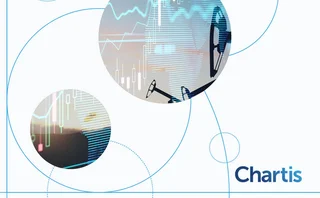
Freight derivatives market shifts further towards clearing
Fears of counterparty credit risk have led to a sharp migration towards clearing in the freight derivatives market over the past four months. The ratio of cleared forward freight agreement (FFA) trades to non-cleared over-the-counter trades in the last quarter of 2008 was 4.3 to 1.
A growing string of defaults began to spread through the shipping industry towards the end of the third quarter. In particular, Armada Singapore's default demonstrated how devastating counterparty credit risk could be. When it filed for bankruptcy in December, the company owed $1.08 billion to 64 creditors.
Armada lost $375 million on FFAs linked to chartering vessels. However, the company was also hit by exposure to other bankrupt counterparties such as Atlas, the Copenhagen-based shipping company, and Britannia Bulk, the UK shipper, which defaulted on FFAs worth $10 million and $6 million respectively. Pioneer Freight Futures, a subsidiary of Hong Kong-based Pioneer Metals, defaulted on $45 million in FFAs with Armada.
"Once you start to see failures and selective lack of willingness to pay, some segments of the OTC market can grind to a halt. Once counterparties begin to default, it has the potential to cause a chain reaction," said Richard Bowler, London-based head of freight origination at Citi.
Historically, cleared and non-cleared OTC trades have sustained similar volume levels. In fact, before the BDI plummeted, there were often instances of traders substantially opting against the clearing route; the week of April 28 saw 58,250 uncleared OTC trades, almost double the 24,753 cleared trades.
As the year went on, the move towards clearing became more pronounced: in the week of September 29, there were 64,874 cleared trades, compared with 21,089 non-cleared trades. The trend has continued into the new year, with an average in 2009 of 13,678 cleared trades a week compared with 3,234 non-cleared trades.
"People are prepared to pay the premium for clearing; it's a cheap insurance relative to the exposure you get," said Bjørn Strømsnes, global head of dry freight derivatives at Imarex, the Norwegian shipping derivatives house.
Bankers and brokers agree that purely bilateral OTC trades are unlikely to regain their former prominence. Philippe van den Abeele, London-based managing director at Castalia Fund Management UK, a hedge fund specialising in freight derivatives, told Risk News that his fund had not done a single OTC trade since September.
Some observers, however, maintain there will always be some companies favouring the bilateral route. "There are still market participants who are willing to give and take each other's credit risk because they are doing it in the physical market as well," explained Jeremy Penn, chief executive of the Baltic Exchange in London.
Meanwhile, the spate of bankruptcies has had severe knock-on effects on the freight derivatives market. "It is obviously not good news for the market. Some of these participants that are no longer around had been quite active traders, so it's a pity to lose the liquidity that they were providing," said Jeremy Penn.
"I would say liquidity has dropped 30-40%, if not more," added van den Abeele.
See also: Credit dries up in shipping industry ;
The state of freight
Only users who have a paid subscription or are part of a corporate subscription are able to print or copy content.
To access these options, along with all other subscription benefits, please contact info@risk.net or view our subscription options here: http://subscriptions.risk.net/subscribe
You are currently unable to print this content. Please contact info@risk.net to find out more.
You are currently unable to copy this content. Please contact info@risk.net to find out more.
Copyright Infopro Digital Limited. All rights reserved.
As outlined in our terms and conditions, https://www.infopro-digital.com/terms-and-conditions/subscriptions/ (point 2.4), printing is limited to a single copy.
If you would like to purchase additional rights please email info@risk.net
Copyright Infopro Digital Limited. All rights reserved.
You may share this content using our article tools. As outlined in our terms and conditions, https://www.infopro-digital.com/terms-and-conditions/subscriptions/ (clause 2.4), an Authorised User may only make one copy of the materials for their own personal use. You must also comply with the restrictions in clause 2.5.
If you would like to purchase additional rights please email info@risk.net
More on Energy
ETRM systems 2024: market update and vendor landscape
This Chartis report evaluates energy trading and risk management systems that provide front-to-back, asset class-specific and geography-specific coverage, and considers the full energy trade lifecycle
CTRM systems 2024: market update and vendor landscape
A Chartis report on commodity trading and risk management systems that considers its different applications and addresses the market and vendor dynamics to determine the long-term and structural impacts of the overarching market evolution on the…
Energy Risk Commodity Rankings 2024: markets buffeted by geopolitics and economic woes
Winners of the 2024 Commodity Rankings steeled clients to navigate competing forces
Chartis Energy50
The latest iteration of Chartis’ Energy50 ranking
Energy trade surveillance solutions 2023: market and vendor landscape
The market for energy trading surveillance solutions, though small, is expanding as specialist vendors emerge, catering to diverse geographies and market specifics. These vendors, which originate from various sectors, contribute further to the market’s…
Achieving net zero with carbon offsets: best practices and what to avoid
A survey by Risk.net and ION Commodities found that firms are wary of using carbon offsets in their net-zero strategies. While this is understandable, given the reputational risk of many offset projects, it is likely to be extremely difficult and more…
Chartis Energy50 2023
The latest iteration of Chartis' Energy50 2023 ranking and report considers the key issues in today’s energy space, and assesses the vendors operating within it
ION Commodities: spotlight on risk management trends
Energy Risk Software Rankings and awards winner’s interview: ION Commodities







